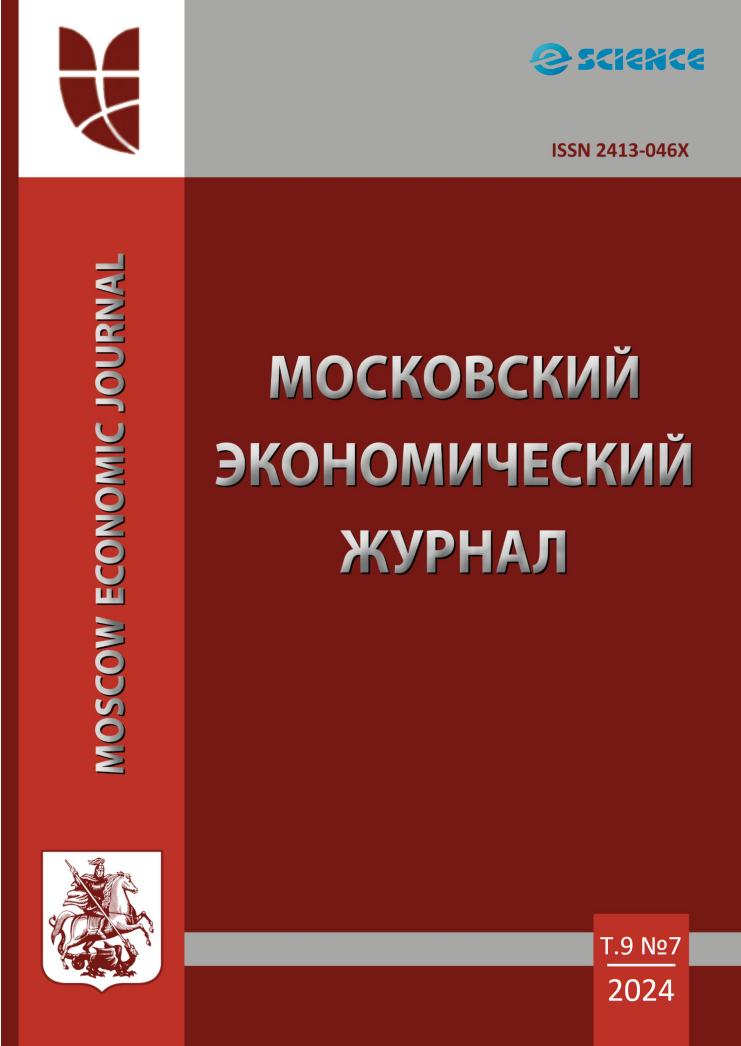Ekaterinburg, Ekaterinburg, Russian Federation
UDC 321
UDC 334.021
The national character of corporate GR has been formed in Russia. The relevance of the development of the theoretical foundations and methodology of GR as a set of terminology systems, approaches and techniques for communication between the business and state authorities (B2G and G2B) lies in the increasing role of state, the desire of business to maximize the value of assets through preferences, to promote their requests and defend rights. The need to divide the directions of communication with the state into corporate, political and power GR is caused by the continuous format of the first and the episodic format of the last two. The authors identify a relatively short period of formation of the institutional environment and an insufficient amount of analytical and scientific research as key constraining factors in the development of the domestic school of corporate GR in Russia. The heterogeneous nature of the regional economic structures and regulatory environments is an additional barrier. Objective of the paper is the formation of a corporate GR research program for the medium term. The methods are structural-systemic, historical-logical, comparative and content analysis, classification, archival research of literary sources. The authors present the definition of corporate GR and its structure, the classification of communication directions, the research program of corporate GR for the medium term. The predominance of formal relations and the dominance of the evidence-based approach on both sides are key features of Russian GR. The findings based on the author's GR-rating of the maturity level of the GR-function include: 1) the level of openness of GR is gaining momentum; 2) a higher level of maturity of GR is manifested in industries with the largest regulatory and distributive activities of the state; 3) GR in large business still has blurred boundaries in corporate design and is poorly supported by internal acts, except for the total presence of an anti-corruption policy.
corporate GR, state-business relation, evidence-based policy, smart regulation, lean regulation, data-driven policy, public sector theory, neo-institutionalism
1. Andronov M. Yu. Berezhlivoe regulirovanie predprinimatel'stva v Rossii // Gosudarstvennoe upravlenie: Rossiya v global'noy politike: Materialy HVII Mezhdunarodnoy konferencii, elektronnoe izdanie setevogo rasprostraneniya. Moskva: OOO "Izdatel'skiy dom KDU", Universitetskaya kniga, 2019. S. 373-380. EDN APDNXB.
2. Asevedo-Yakubovskaya K. GR - vchera, segodnya, zavtra. Osobennoe v portretnom predstavlenii GR-kommunikacii v nashey strane // Sociodinamika. 2017. № 5. S. 144-150. EDN YPJITT.
3. Barykin A. N., Kolesnik A. Yu. Koncepciya upravleniya otraslevoy standartizaciey. Kursk: Zakrytoe akcionernoe obschestvo "Universitetskaya kniga", 2023. 224 s. ISBN 978-5-907776-24-1. EDN UDLHCW.
4. Barykin A.N., Kolesnik A.Yu. Metodika ocenki vovlechennosti federal'nyh organov ispolnitel'noy vlasti v otraslevuyu standartizaciyu // Standarty i kachestvo. 2023. № 2. S. 12-17. https://doi.org/10.35400/0038-9692-2023-2-317-22. EDN VJEGQY.
5. Barykin A.N., Islyaev T.R., Kolesnik A.Yu. GR-reyting za 2022 god: 100 krupneyshih rossiyskih kompaniy bez gosudarstvennogo uchastiya. Ridero, 2024. 144 s. ISBN: 978-5-0064-2364-0.
6. Blizkiy R.S., Budaeva Yu.Zh., Dolgushkina V.A., Gulua S.V. Tehnologii i trendy ucheta, otchetnosti i kontrolya v usloviyah razvitiya cifrovoy sredy gosudarstvennogo upravleniya // Buhuchet v zdravoohranenii. 2023. № 4. S. 5-17. https://doi.org/10.33920/med-17-2304-01. EDN EGQMDC.
7. Blohin A.A., Adamyan E.A., Kitaev A.E., Mironova I.I. Sravnitel'nye ocenki parametrov celey gosudarstva i drugih sub'ektov upravleniya rossiyskoy ekonomikoy // Vestnik Moskovskogo universiteta. Seriya 6: Ekonomika. 2019. № 2. S. 3-25. EDN CDIDPT.
8. Vitkovskaya T.B. Politicheskie strategii krupnogo biznesa v malyh rossiyskih gorodah // Ars Administrandi (Iskusstvo upravleniya). 2022. T. 14, № 3. S. 532–553. https://doi.org/10.17072/2218-9173-2022-3-532-553.
9. Degtyarev A.A. "Svoy sredi chuzhih": GR-menedzhment kak politicheskoe upravlenie v arsenale "nepoliticheskih" agentov // Vestnik Rossiyskogo universiteta druzhby narodov. Seriya: Politologiya. 2023. T. 25, № 2. S. 348-367. https://doi.org/10.22363/2313-1438-2023-25-2-348-367. – EDN YYYTLQ.
10. Kayl' Ya.Ya., Lamzin R.M., Epinina V.S. GR-menedzhment: realii i perspektivy razvitiya // Fundamental'nye issledovaniya. 2016. № 9-3. S. 597-600. EDN WMSOZN.
11. Kraynova K.A. K voprosu o ponimanii GR-kommunikaciy v sisteme upravleniya politikokommunikativnymi processami // Chelovek. Soobschestvo. Upravlenie. 2012. № 2. S. 123-129. EDN PYTPXX.
12. Morozov O.A. GR-menedzher - novaya professiya so starymi tradiciyami // Vestnik Sankt-Peterburgskogo gosudarstvennogo universiteta tehnologii i dizayna. Seriya 3: Ekonomicheskie, gumanitarnye i obschestvennye nauki. 2016. № 4. S. 16-19. EDN YORLJT.
13. Rahmeeva I.I. Regional'naya regulyatornaya sreda: na rasput'e. Ekaterinburg: Ural'skiy gosudarstvennyy ekonomicheskiy universitet, 2021. 210 s. ISBN 978-5-9656-0311-4. EDN NZTSFG.
14. Rodikova V.A. Legal'nyy GR dlya horoshey kompanii: mezhdu molotom regulyatora i nakoval'ney zakona // Vestnik Chelyabinskogo gosudarstvennogo universiteta. Seriya: Pravo. 2022. T. 7, № 3. S. 59-70. https://doi.org/10.47475/2618-8236-2022-17310. EDN TWTZTJ.
15. Sadovaya E.S. i dr. Social'noe gosudarstvo v zerkale obschestvennyh transformaciy / Otv. red. E.S. Sadovaya, I.P. Capenko, I.V. Grishin. M.: IMEMO RAN, 2020. 211 s. ISBN 978-5-9535-0584-0. https://doi.org/10.20542/978-5-9535-0584-0.
16. Stoyakin V.V. Rol' GR-menedzhmenta v formirovanii civilizovannogo korporativnogo lobbizma v rossiyskih regionah // Chelovek. Soobschestvo. Upravlenie. 2009. № 2. S. 72-88. EDN OIVNXS.
17. Teteryuk A.S. Delovye associacii v sovremennom GR-menedzhmente v Rossii: teoreticheskiy obzor // Voprosy politologii. 2016. № 4(24). S. 32-39. EDN XGSFUH.
18. Tret'yakova E.A. Raskrytie ESG-faktorov v nefinansovoy otchetnosti rossiyskih neftegazovyh kompaniy // EKO. 2022. № 9 (579). S. 130-148.
19. Tuzovskiy A.S. Dinamika korporativnyh GR-kommunikaciy: neoplyuralisticheskiy analiz v Sibirskom federal'nom okruge // Vestnik Tomskogo gosudarstvennogo universiteta. Filosofiya. Sociologiya. Politologiya. 2021. № 62. S. 153-159. https://doi.org/10.17223/1998863X/62/13. EDN RCHHUZ.
20. Turceva K.P. «Ekspertnaya sbalansirovannost'» v obschestvennyh eko-logicheskih sovetah regionov Rossii // Ars Administrandi (Iskusstvo upravleniya). 2023. T. 15, № 3. S. 471–494. https://doi.org/10.17072/2218-9173-2023-3-471-494.
21. Epinina V. S., Popova A. R., Popova O. Y. GR management actualization in the context of achieving the national development goals of the Russian Federation for the long term // Lecture Notes in Networks and Systems. 2020. Vol. 110. P. 267-275. https://doi.org/10.1007/978-3-030-45913-0_31. EDN RRYZJH.
22. Hamilton-Hart N., Wai-chung Yeung H. Institutions under pressure: East Asian states, global markets and national firms // Review of International Political Economy. 2019. Vol. 28(1). P. 11–35. https://doi.org/10.1080/09692290.2019.1702571.
23. Lim, G., Gomez, E. T., & Wong, C. Y. Evolving State–Business Relations in an Age of Globalisation: An Introduction // Journal of Contemporary Asia. 2021. Vol. 51(5). P. 697–712. https://doi.org/10.1080/00472336.2021.1934720.
24. Newman J., Mintrom M. Mapping the discourse on evidence-based policy, artificial intelligence, and the ethical practice of policy analysis. Journal of European Public Policy. 2023. Vol. 30 (9). P. 1839–1859. https://doi.org/10.1080/13501763.2023.2193223.
25. Schleifer P., Fransen, L. Smart mix politics: business actors in the formulation of global supply chain regulation. Review of International Political Economy. 2024. Vol. 1–25. https://doi.org/10.1080/09692290.2024.2367582.
26. Sunstein C.R. Behavioral Science and Public Policy. Harvard University, Massachusetts, 2020. 75 p. ISBN: 9781108972789.
27. Trommel W. Good governance as reflexive governance: In praise of good colleagueship, Public Integrity. 2020. Vol. 22, № 3. P. 227–235. https://doi.org/10.1080/10999922.2020.1723356.











